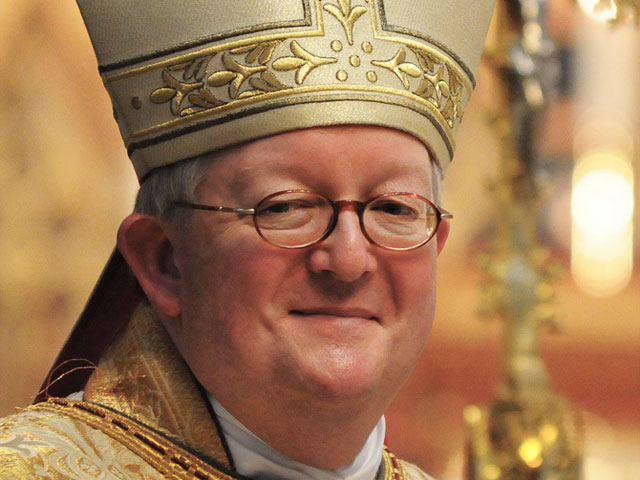All news is local.
That’s one of the first laws that journalists quote whenever we try to explain what is and what isn’t news to those outside the profession. In other words, when editors rank stories — deciding what goes on A1, for example — one of the main factors that they take into account is whether an event or trend hits close to home for their own readers. What’s the local angle?
With that in mind, it isn’t all that surprising that The Baltimore Sun was the rare newspaper that dedicated a rather sizable chunk of its Hobby Lobby decision story to the Little Sisters of the Poor and to religious liberty issues linked to Obamacare that, apparently, remain to be resolved.
Many newspapers forgot the Sisters altogether, but not the newspaper that lands in my front yard.
Why the stress on the status of doctrinally defined non-profit ministries that are still protesting the Health and Human Services mandate on a variety of contraceptive services? That’s easy to explain.
In a 5-4 ruling, the court’s conservatives found that the requirement for contraceptive coverage tied to Obama’s signature health care law ran afoul of a 1993 law expanding religious freedom. The decision, written by Justice Samuel A. Alito Jr., could have implications not only for secular companies but also religious organizations that are seeking a more complete exemption from the same requirement, including the Little Sisters of the Poor, a Catonsville-based Catholic charity.
In other words, (all together now): All news is local.
So what is the nature of the HHS mandate objections that remain for many religious ministries? Here is how the Sun took that on:
… (The) U.S. Department of Health and Human Services limited the scope of the requirement for some religiously affiliated organizations, such as hospitals and universities. Those groups are not required to pay for contraceptive coverage themselves if they sign a form stating their objection.
Employees of those groups may continue to receive coverage for birth control, but it is paid for by the insurance companies — and in some cases the government — not the employer.
Catholic groups, including the Little Sisters, have argued that the act of signing the form — and passing the responsibility off to an insurance company — makes them complicit in violating their religious doctrine. The group’s case could come before the Supreme Court as soon as next year.
That isn’t bad, yet it is incomplete. There are those who sincerely doubt that insurance companies will resist the temptation to simply pass these costs along to religious ministries in the form of raised rates or vague fees.
In other words, there is more to this question than whether religious believers are asked to sign what they see as an offensive piece of government paperwork that may or may not pass the buck to someone else.
Meanwhile, the Sun did try to get other insights into the Hobby Lobby decision and its links to religious groups. Bravo for the attempt.
In his decision Monday, Alito specifically pointed to the arrangement groups like Little Sisters operate under as an attempt by the administration to “respect the religious liberty of religious nonprofits corporations while ensuring that the employees of these entities have precisely the same access” to contraception.
A Little Sisters spokeswoman referred questions to the group’s attorneys. Daniel Blomberg, legal counsel for the Becket Fund for Religious Liberty — which represents both Hobby Lobby and the Little Sisters — said the court was only using the situation with the nonprofits as an example of an arrangement that was less restrictive and was not endorsing the idea.
Alito specifically wrote that the court was not rendering an opinion on the approach.
“The question is will the government continue coming after Little Sisters of the Poor even after this decision,” Blomberg said.
In a statement, the U.S. Conference of Catholic Bishops said the decision “clearly did not decide whether the so-called ‘accommodation’ violates” the law.
Should more newspapers have included this kind of material in their coverage of the Hobby Lobby decision? Should more editors pursue this angle in follow-up coverage in the days ahead.
Well, that depends on whether their “local” marketplace includes one of the dozens and dozens of religious schools and ministries that are still fighting the White House “accommodation” that their leaders do not believe is a true accommodation. Editors might want to check that out.











